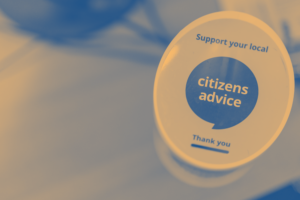During July, Diss and Thetford Citizens Advice will be taking part in the annual Scams awareness campaign as part of a national initiative. The aim is to raise awareness of the increasing prevalence and sophistication of scams of all kinds. This year Citizens Advice have identified four groups to target in the campaign, and have described them as follows :-
“ Young people (18–24)
While young people don’t represent the largest group of people falling victim to scams, evidence shows that there has been a sharp rise in the number of under-25s hit by scams.
In particular, young people are found to be a growing proportion of victims of online and identity fraud. As ‘digital natives’ who have grown up surrounded by technology, they are often con dent in their ability when using things like the internet. This can lead to them feeling like they are unlikely to fall for scams targeted at them through these routes, in turn making them complacent and increasing their vulnerability to scams. Citizens Advice research also shows that over half of young people are unlikely to report scams.
“Life established” (40s–60s)
The statistics show that people in the age group between 40 and 60 are the most affected by scams. Part of this is due to the fact that they are most likely to report scams, but recent research has found that certain demographics within this group are being targeted because of their circumstances. For example, this group tends to be more settled and has access to financial assets.
Over 70s
Older people are often targeted by scammers. Research has found that 75 is the average age of reported scam victims and those over-70 have the highest detriment from a number of different types of scam. Older people tend to fall victim most to phone and mail scams and figures from National Trading Standards show that older people are deliberately targeted more so than other demographics. This group also sees the largest proportion of people who are re-occurring victims of scams.
Socially isolated
People who are socially isolated can be the hardest to reach and often aren’t able to access the same support, advice and help that others can. While this group makes up a smaller number of cases of reported scams they often have high levels of detriment, not just in the amount of money lost, but the overall impact on health and wellbeing.





